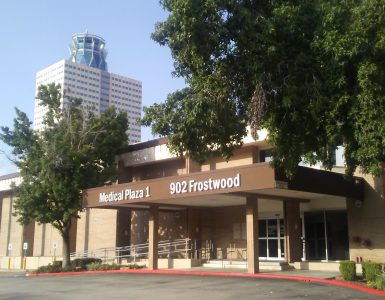Nonprofits play a vital socioeconomic role in the United States by providing solutions to needs that are often overlooked by government or private business, and by serving hands-on in their communities with those that need them most. When considering space, nonprofits often face challenges related to site selection, deal structure, decision-making and approvals, and special financial and fundraising circumstances. Stephen Powers, tenant advisory expert and leader of Transwestern’s National Nonprofit Advisory Group, has dedicated years to understanding the unique needs of his nonprofit clients and crafting mission- and program-focused real estate solutions that are right for them.
Q: How can a nonprofit’s real estate help it in an economic downturn?
Especially in an economic downturn, real estate can be a source of endowment for a nonprofit. In a recently closed sale for Sheltering Arms in Manhattan, despite being hit by the downturn, we were able to show the overall financial strength of the organization. It communicates stability, which is something any organization or company needs in a slow economy, and it is especially true of nonprofits. From the sale and because of that stable reputation, we also facilitated a new lease that provides 30,000 square feet to continue the organization’s work.
Q: How do a nonprofit’s programming or values influence the real estate solutions you recommend when selecting or designing a space?
We start every project with the programming and mission of an organization because this foundation is critical to understanding the nonprofit’s unique needs and desires. Information gleaned could require creativity or flexibility in the lease or location, or a cooperative and positive landlord relationship, depending on the kind of work they do.
We also seek to understand what office elements are most important. This goes beyond structural elements and fixtures; nonprofits often live out diversity, inclusivity and equity in a very open and visible way.
Q: What are a few of your biggest success in 2020?
A few 2020 accomplishments have involved work with clients like schools and other nonprofits that have been considered essential businesses during the pandemic. This includes clients such as Zeta Charter School and Democracy Prep, as well as KIPP NYC.
We are also proud of how we’ve been able to help clients find space as well as sell space, such as Rising Ground in the Bronx. Some of the most exciting deals have shown us how our clients are showing up in their community and how we can serve them. Helping an organization in a tough time like a pandemic is incredibly rewarding.
Q: Could you share some examples of collaboration with other TW markets to assist nonprofits outside of New York City?
We recently completed a deal with Genesys Works, collaborating with Erskine Black in Houston to finalize a deal for its new headquarters. We were also involved in a deal with Faces SF in San Francisco, helping the organization find a real estate solution for new daycare facilities.
Aside from deals, we’ve enjoyed facilitating Eggs & Education, a national business development workshop that we’ve hosted in cities across the country, bringing collaborative ideas and actionable insight about how to better serve nonprofit clients and expand business.
























